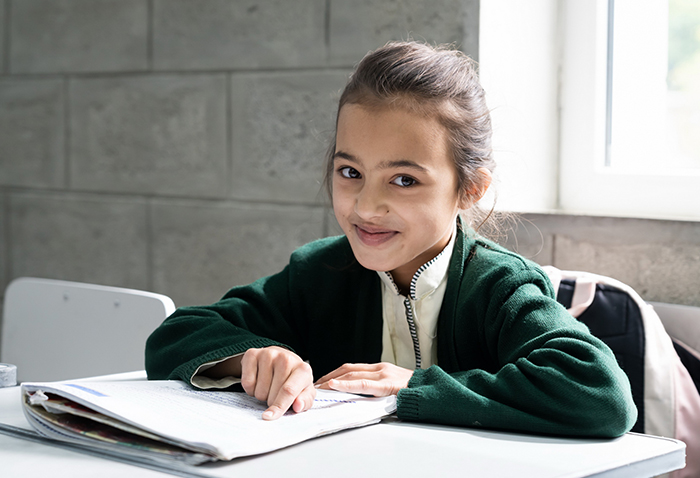Due to COVID-19, many of the world’s children have been out of school and, in some developing countries, for more than six months. In response, educators and families throughout the world have stepped up to the challenge to ensure children continue to learn and grow, often without access to technology.
The Aga Khan Foundation’s educational response work forms part of the Aga Khan Development Network’s three-pronged global COVID-19 response framework. In education, AKF has partnered with local and global stakeholders to generate new—and adapt existing—resources around three key areas:
- Supporting families to help children learn while at home;
- Supporting educators to adapt to new COVID-19 compliant teaching and learning methodologies; and
- Supporting schools to prepare to reopen and build back better to address key learning gaps and promote safe and healthy learning environments.

Supporting families
The COVID-19 outbreak has resulted in family members of all ages experiencing stress and anxiety. But there are simple things that everyone can do to become more resilient. In addition to the tips, activities, and education resources found in our Supporting Children to Learn at Home post, AKF has developed guidance on psychosocial support and wellbeing.
The Psychosocial Support and Wellbeing: Guidance for Individuals and Families document has tips, resources, and activities to help families and individuals reduce stress and anxiety, and remain hopeful in an unsettled world.
Supporting educators
The pandemic has brought significant challenges to educators. In addition to the guidance found on our Tips and Resources for Educators during COVID-19 post, AKF has developed free online video courses on how to create an inclusive learning environment.
As remote learning continues while other schools reopen, we know that creating an inclusive learning environment where students feel welcome and secure has never been more important.
AKF’s three online courses walk educators through our Creating an Inclusive Learning Environment Guide, which helps educators gain new ideas, skills, and strategies about how to lead more inclusive learning environments from real-life examples around the world.
You can learn more about the courses and access them here.
Supporting schools
What will “back to school” look like? How might schools reimagine the future of teaching and learning? To answer these questions and more, partners across AKF’s Schools2030* program are engaged in a bold, first-of-its-kind design thinking course. Educators, practitioners, and professors from around the world are taking part with a commitment to find new solutions to the problems of COVID-19.
Following the 12-week course, AKF partners will begin working with 1,000 schools to roll-out similar offline and online design thinking to address the emerging gaps in learning across its multi-country portfolio. Read more about designing these new solutions here.
At the country level, AKF has also adjusted existing financial and technical resources and developed new partnerships to respond to the COVID-19 related challenges for the future of teaching and learning, including:
- Enabling more than 50,000 children learn through play in Kenya in partnership with the LEGO Foundation; and
- Partnership with the Regional Education Learning Initiative (RELI) in East Africa to further develop the capacity of civil society organizations in education.
Together, AKF remains committed to building new opportunities to best support teachers, families, and communities during this time. We continue to search for new solutions, listen to those on the frontlines, and co-develop relevant innovations that will make a lasting and sustainable impact for all.
This post was adapted from a publication that first appeared on AKDN.org.